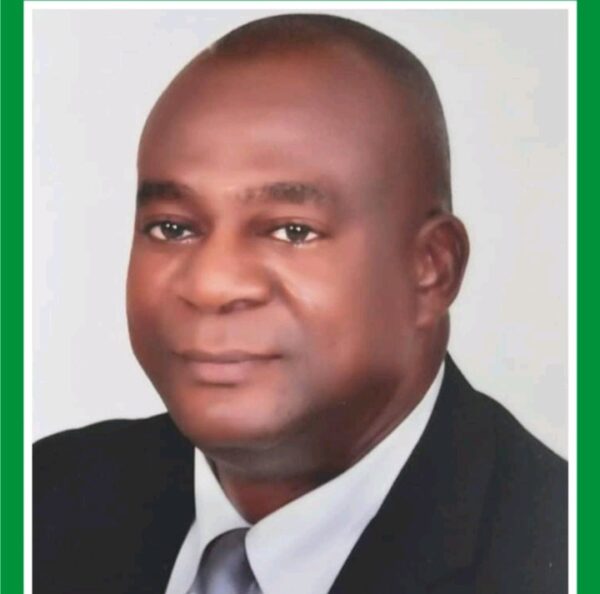How FG Can Convert Illegal Refiners Into Gainful Entrepreneurs – Wachukwu
By Kenneth Jukpor

Prof. Confidence Wachukwu is the Dean of the Faculty of Social Sciences at Rivers State University. He represented the Vice Chancellor of the university last week, in an event organized by the Chartered Institute of Environmental and Public Health Management of Nigeria in collaboration with Maritime Reporters’ Association of Nigeria (MARAN). MMS Plus sat with Wachukwu to extract this interview after the event. Enjoy it!
This summit set out to deliberate on marine pollution and the challenges of seaport environmental health management in the 21st century. How pertinent is this issue and what’s your take on the pollution in the Niger Delta area?
The conference has been very strategic and worthwhile. The issue of environment pollution and health concerns is something that should get more public discourse and attention for the government, Organized Private Sector (OPS) groups and everyone. There were two key papers at the event and several notable interventions and contributions. Earlier, I talked about the issue of soot.
I talked about the issue of soots in the Niger Delta as a result of illegal oil bunkering and artisanal refining in the area which several youths are engaged in. Some of them are benefiting from the monetary rewards of this business but they don’t know the environmental and health consequences of their activities in the area. This could cause a lot of respiratory problems because people in those areas are inhaling the soots. It is polluted air that we don’t know the consequences. Today, the world is talking about COVID-19 and how it has crippled economies, but we could have another pandemic outbreak or something more deadly with the eventualities that could arise from continuous intake of soot. How prepared is Nigeria for a possible outbreak of any disease resulting from the intake of soots?
We should also note that the challenge is not limited to the people in those areas in Port Harcourt because we are talking about polluted air. You find the black substances from the soot on plants that are later eaten and on the surface of items in such locations. If you stay in those affected areas for some hours or touch your nostrils after a brief exercise, you’ll see the substances and you can also imagine the quantity that people must have inhaled by living in such an environment.
People who are asthmatic also have a serious problem because this could aggravate their conditions. There could also be certain ailments that this soot could aggravate and we mayn’t know until the outbreak of a disease occurs. We may even forget the source of the calamity but the truth is that we are not prepared.
Do you think these calls for proper research on the menace of soots even as various tiers of government could be public enlightenment and adequate regulation of such activities?
Well, this issue of soot was taken seriously in Rivers State as the Ministry of Environment in the State, did a study some years ago. Subsequently, they came up with recommendations. Nevertheless, I can’t tell whether those recommendations have been looked into, let alone being implemented since that time.
So, the issue of research isn’t the problem because the Ministry has done something in that regard. However, that is yet to transmute into solving the problem.
This issue of illegal bunkering and petroleum refining is seen primarily as a menace, but could the narrative be changed if the federal or state government invests in educating and upgrading these young dealers to enable them churn out products that meet best standards with minimum impact on the environment? Wouldn’t that be a more productive approach?
It will be a good initiative for the federal government or state government to channel efforts towards training these youths because people are using their products despite improper refining. With better training on best standards and environmental issues, we mayn’t have the best petroleum products but it would be better and the market is available for the products. It would also ensure that some of the environmental hazards caused by their activities will be limited.
The fact that people are using the products refined illegally by these boys, means that with a little training they will be better at the practice. Government should explore alternatives to train and educate them because it will also go a long way to address the youth’s restiveness and unemployment margin in the future. However, the major challenge is that the political will isn’t there; otherwise, the government could achieve this.
If the potentials of these illegal refineries are explored it would go a long way to boost the economies of the states and the nation at large.
You also talked about the mindset of Nigerians with regards waste management. It’s difficult to find Nigerians that are cultured to only dispose of waste in the right places. We find streets littered with paper waste, plastics and metals, among others. How can this necessary behavioral change be attained?
The longevity of our lives is tied to the proper management of the environment. As it is said, “cleanliness is next to godliness.” Several years ago, in primary and secondary schools we were taught hygiene; how to keep the environment clean, pick up litter, cut your nails, brush your hair, wear clean clothes, etc. It was abnormal to walk in the streets and find someone disposing of waste on the roads but that is what is obtainable as the norm today. Perhaps, it is time to return to the status quo. We should have regard for the environment, because if we don’t keep the environment clean our lives will be shortened.
Some states set aside one day in every month for sanitization but this shouldn’t be an activity that is held once in a month. It should be the way of life and a daily exercise. Why should someone be driving in his car and throw out waste on the roads?
There was an incident where I was driving behind a couple and the wife threw a watermelon outside the car after eating it. While I was wondering why that happened, the man threw his watermelon remnant out also. I was devastated and drove past them in James-Bond manner and demanded that they go back to pick those items. They went back and did so after apologizing to me. They thought I was a security agent, but I just couldn’t stand the sight of that misnomer. At another instance, I was driving with a friend and she threw a paper out of the car. I parked immediately and demanded that she pick it up before we continued that journey.
Government should introduce laws that would curb this practice and engage those looking for jobs at strategic places to monitor the process. Defaulters should be made to pay heavy fines and it would send signals to people so that they care for the environment. There is a need for a little force and penalties to achieve this.
Nigerian universities have been accused of producing unemployable graduates because there seems to be a disconnect between what is taught in schools and the realities in the workplace. As an academician, what advice do you have for young graduates or is there a need to rejig the curriculum of tertiary institutions?
I think this is a misconception that has to be corrected because in the universities we do a lot of things. In fact, there are some innovative courses that have been introduced like entrepreneurship. Besides the core areas of study, students are taught particular skills that could help them. My son who is studying Engineering is also into fashion designing and he makes most of my attire. So, entrepreneurship skills are there.
Except there are students who don’t want to help themselves, I’m convinced that every Nigerian graduate can succeed in any field of study upon graduation. Let’s not say that the institutions aren’t training the workforce properly. We train them in character and learning. The problem of unemployment is a national one but they must be willing to make something meaningful out of their careers or resolve to be productively engaged via entrepreneurial skills.
There are also innovative courses across several disciplines in Nigerian universities and the goal is to ensure that the students don’t just rely on theoretical work, but have a feel of the ideal workplace and the peculiarities.








